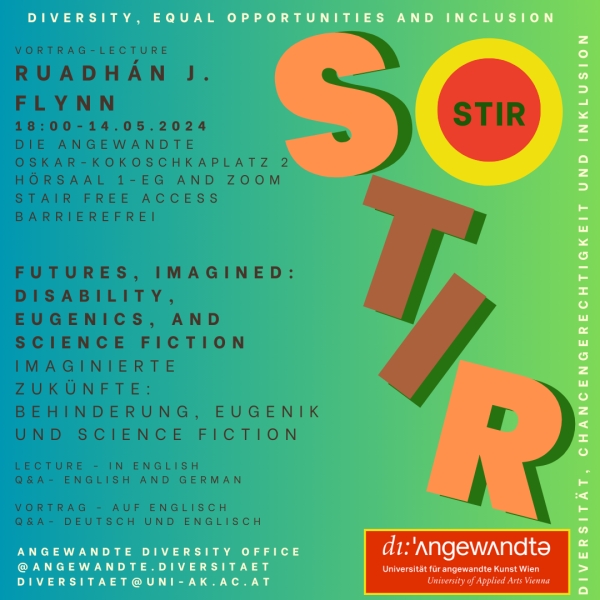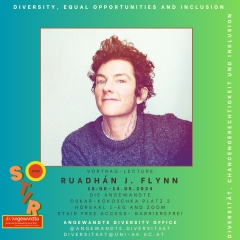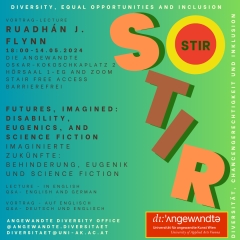Egalitarian visions of the future typically portray harmoniously diverse societies,
where divisions along racist, economic, and religious lines have been overcome. Such futures are(typically) also curiously
free of disabled people. It remains a widespread assumption that a better future will be one in which disability(understood
as an error or failure in individual bodies) has been eliminated.
Yet this assumption aligns
with eugenics; itself an exercise in science fictionwhich aimed to manifest a vision of a purer, stronger, white supremacist
future by eliminating supposed-inferior and defective strands of the human species. Doeseugenics still limit our individual
and collective imagination? And if “all [social]organizing is science fiction” (Imarisha, 2015), how are our movements for
social justicein the here and now affected by thedistant futures we imagine?
Speaker: Ruadhán
J. Flynn, MRes, BA
Bio:Ruadhán (pro: Roo-awn) is currently prae-doc on the FWF project "The
Limits of Imagination" (University of Innsbruck), PhD candidate in the Vienna Doctoral School of Philosophy (University of
Vienna), and guest researcher at the Messerli Research Institute (Vienna). His research is centered on theories and practices
of dehumanization, with a current focus on cognitive disability as a category of social oppression. His doctoral thesis combinescritical
disability studies, feminist epistemology, and research on imagination and empathy.
See:
ruadhanjflynn.com






